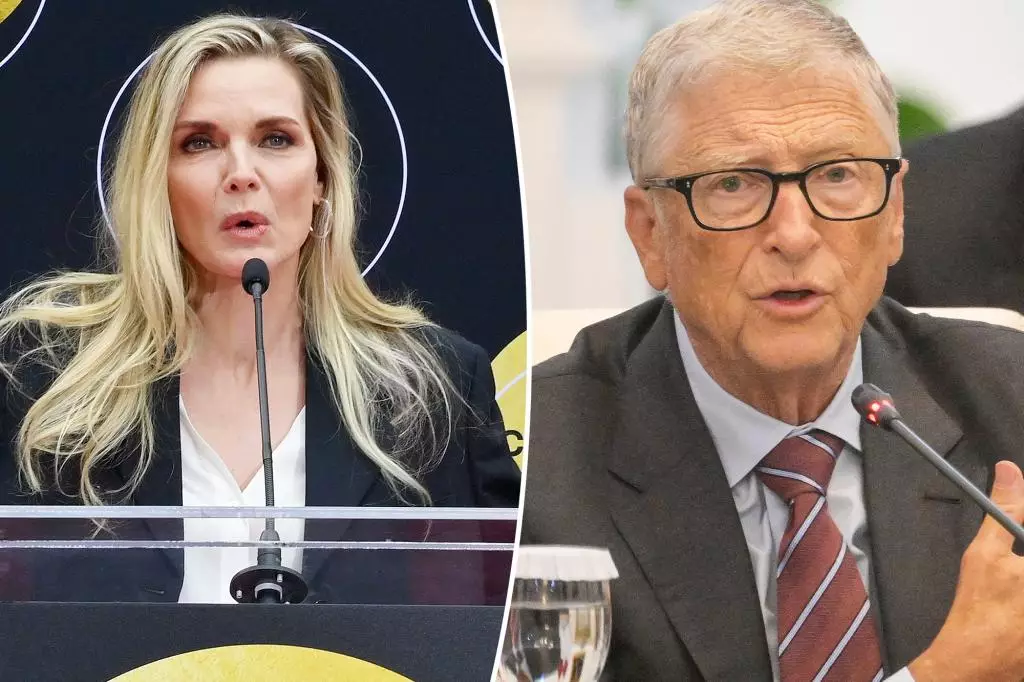In recent days, the celebrated actress Michelle Pfeiffer took to her social media platforms with a pointed critique of Apeel Sciences, a company pioneering edible coating technology intended to extend the freshness of produce. Her concerns stem from the FDA’s approval of the product for use on USDA-certified organic fruits and vegetables—a move that Pfeiffer describes as alarming. Her primary contention lies in the fact that consumers can no longer visibly see or wash away these coatings, which she warns could compromise the integrity of organic produce and the trust we place in organic labeling.
What makes Pfeiffer’s stance intriguing is her framing of the issue as a fundamental threat to food safety. She suggests that the unseen nature of Apeel’s coating raises questions about consumer awareness and choice. While many consumers appreciate transparency and minimal intervention, Pfeiffer’s alarmist tone seems aimed at challenging the assumptions that organic products are inherently free of added substances. Her call to action—advising followers to scrutinize available lists of grocers—reflects a broader distrust of modern food technology and regulatory processes that she perceives as compromised.
However, her narrative arguably oversimplifies the science and regulatory oversight involved. Her framing implies an outright danger, yet Apeel has stated that their product is composed of naturally occurring plant-based fats—ingredients common in everyday foods—and can be washed off with warm water and gentle scrubbing. This discrepancy between her claims and the company’s assertions is worth examining more critically.
The Skepticism Toward Food Tech Giants and the Role of Misinformation
Pfeiffer’s critique extends beyond mere skepticism about the coating itself; it taps into a larger apprehension about powerful technology companies and influential individuals like Bill Gates. She links Apeel’s approval to broader concerns about corporate influence over what we eat, especially in the context of Gates’ philanthropic work and past funding of the company. Although Apeel distanced itself publicly from Gates multiple times, the association—real or perceived—adds fuel to the fire of suspicion.
This raises an important question about the role of celebrity influence in shaping public opinion on science and technology. Pfeiffer’s impressive platform amplifies her voice significantly, but is she wielding her influence responsibly? The challenge lies in balancing genuine concern with the risk of spreading misinformation based on incomplete or misunderstood science. Her depiction of organic produce as “no longer safe” may resonate emotionally, but it risks fueling unnecessary fear and resistance against legitimate innovations aimed at reducing food waste and improving sustainability.
Furthermore, Apeel’s response frames her comments as misinformed and harmful. They emphasize their compliance with regulatory standards and deny any recent approval, asserting transparency and integrity. Yet, the debate she ignited highlights a critical need for consumers to better understand complex food science—something often lacking in these emotional social media exchanges.
The Science, Safety, and Future Implications of Edible Coatings
On the scientific front, Apeel’s coating is designed to be edible and derived from natural plant-based fats. These are ingredients widely recognized as safe for consumption, and they are found in numerous processed foods. The claim that it can be removed with water aligns logically with its composition—yet Pfeiffer’s assertion that it’s invisible and indelible implies a misunderstanding that warrants clarification.
This controversy prompts a broader reflection on how food innovations are communicated and received. While skepticism can be vital, especially when it involves health and safety, it must be grounded in scientific understanding, not fearmongering. The real challenge is ensuring that consumers have access to accurate information that allows them to make truly informed choices.
As the global community pushes for sustainable solutions to food preservation, the debate over edible coatings like Apeel embodies the tensions between innovation, regulation, and public trust. It’s imperative that companies, regulators, and consumers work together to foster transparency, dispel myths, and embrace responsible science. Critics like Pfeiffer serve an important role in raising questions—yet they must be equipped with facts rather than fear-driven narratives to truly contribute meaningful dialogue in this evolving arena.

